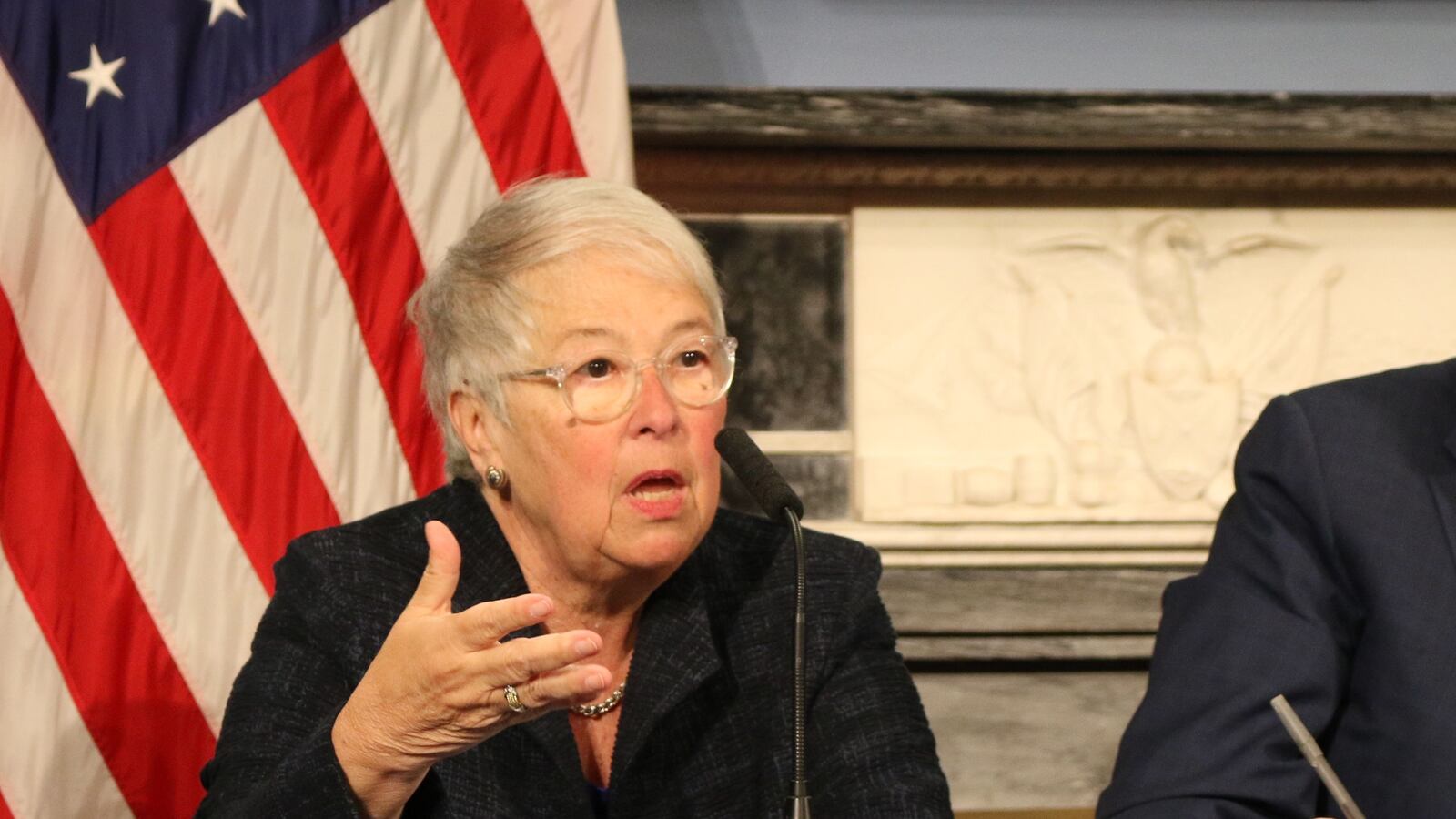As the search for a new leader of the nation’s largest public school system begins, Mayor Bill de Blasio said Thursday that he has a specific type in mind: someone who is a lot like the 50-year veteran stepping down.
At a press conference, de Blasio said he has already begun a national search to replace Chancellor Carmen Fariña, who formally announced her retirement on Thursday. He emphasized that he is not looking for someone to shake things up but rather wants someone who will follow through on the course that he and Fariña set out. He also committed to hiring an educator, an important criteria for the mayor when he chose Fariña that set him apart from the previous administration.
“I’m thrilled with what Carmen’s achieved and I want to just deepen what she has started,” de Blasio said on Thursday. “Am I looking for something we don’t have? No.”
Fariña became chancellor after de Blasio was initially elected mayor in 2013. A longtime veteran in the New York City schools system, she emphasized sharing ideas among educators and infusing schools with resources.
It was long rumored that Fariña, 74, would step down upon de Blasio’s re-election. Her departure, which leaked out on Wednesday, opens up one of the largest jobs in education in the country, with responsibility for overseeing 1,800 schools and 1.1 million children, as well as a large workforce of administrators, teachers, support staff and department officials.
In his first term, de Blasio’s signature education accomplishment was universal prekindergarten, and he has signaled that he wants to double down on his existing policy initiatives. He hopes to expand pre-K to 3-year-olds and carry out his “Equity and Excellence” agenda, which includes offering computer science in every school and improving literacy.
De Blasio lavished praise on Fariña’s efforts to help him tackle big initiatives during his first term, calling her energy “superhuman” and her accomplishments “miraculous.”
“I asked a lot of Carmen Fariña, and she gave me even more,” de Blasio said.
The mayor said he plans to select a new chancellor in the next few months and that he hopes Fariña will continue in her post until then. He gave little information about the search process, saying only that it will be an internal, quiet decision.
For her part, Fariña emphasized many of the same goals that she first set out to accomplish. She focused on valuing collaboration among educators over competition and discussed elevating the teaching profession.
“The thing I’m proudest of is the fact that we have brought back dignity to teaching, joy to learning, and trust to the system,” Fariña said.
The chancellor also said she does not see retirement as “going off into the sunset,” but instead plans to be involved in education projects. In particular, she said she may help educators working at separate schools in the same building find more ways to share ideas. (After her first retirement in 2006, when she stepped down as deputy chancellor of teaching and learning, she continued to work as a consultant in city schools.)
However, she also made it clear that any education initiatives will be a side job — and that her primary goal is to relax.
“The next stage of my life, I am not going to have a Blackberry to walk around with,” Fariña said. “I am going to go out to dinner and not have to respond to any emergencies. I’ve already started thinking about at least one vacation with each of my daughters.”

